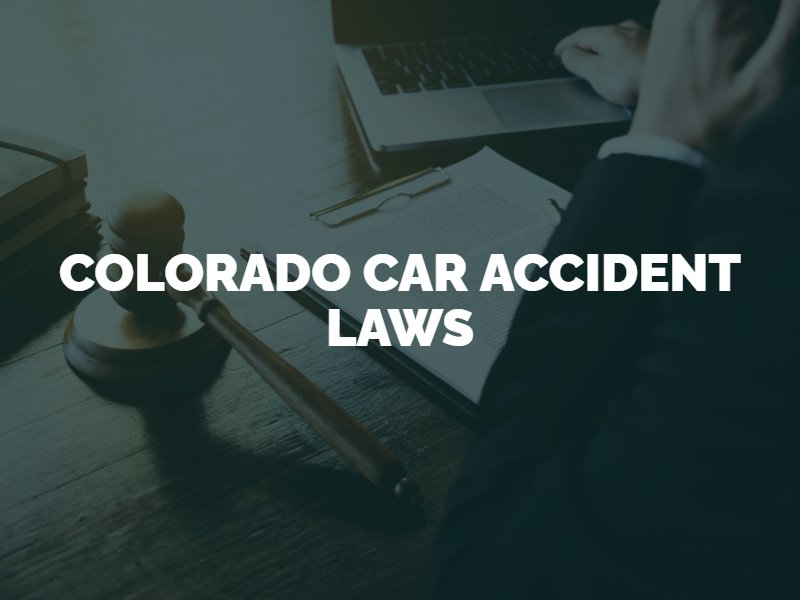Sorting through the aftermath of a car accident is not easy as an injured victim. You must obey specific rules, laws and insurance procedures. The car accident laws in your state will determine important facts, such as who will receive your insurance claim and your deadline for filing a lawsuit. You do not have to navigate Colorado’s car accident laws alone. Work with a Denver car accident lawyer for assistance understanding the laws that pertain to your particular case.

Colorado has car insurance requirements that apply to every vehicle operator in the state. It is against the law to operate a motor vehicle in Colorado without first purchasing adequate amounts of insurance. The types and amounts you must purchase are at least $25,000 in bodily injury or death liability per person, $50,000 per accident, and $15,000 in property damage liability. These types of insurance can cover a victim’s medical expenses and vehicle repairs after an accident.
In general, the minimum required amounts of insurance will only cover other people’s damages, not those of the policyholder. A driver could purchase additional insurance, however, for first-party coverage. Colorado is a fault state, meaning it uses a tort-based car insurance law. This law states that the driver who caused the accident will have to use his or her insurance to pay for others’ damages. After a car accident in Colorado, you will seek compensation from the at-fault driver’s auto insurance policy.
During your car accident claim, you may need to deal with Colorado’s comparative negligence law. This law states that if an accident victim contributed to his or her own injuries, he or she will receive a diminished recovery award. The courts in Colorado will reduce a plaintiff’s financial award by an amount equivalent to his or her degree of fault for the auto accident. If the at-fault party alleges that you also caused the accident, you could receive less compensation. If the courts find you 50% or more at fault for the car crash, you will not receive anything for your damages.
You must involve the police if you get into a serious car accident in Colorado. It is your duty as a driver to notify the police right away – from the scene of the crash, if possible – if your car accident disables a vehicle, causes a personal injury or involves a fatality. Call 911 to report the accident. You should also call the police if your car accident involves an alleged drunk driver or hit-and-run. Within 10 days of your accident, you can obtain a copy of your police crash report to use during an insurance claim.
If the car insurance process does not result in the compensation you or your Denver personal injury attorney believes you deserve, you can take the defendant to trial in Colorado. You must file your lawsuit within the statute of limitations. Each state has unique statutes of limitations. Colorado Revised Statute 13-80-101 gives a three-year statute of limitations on most civil claims. This law states that after an auto accident, a victim must commence a cause of action within three years of the date of the crash. If you are filing a wrongful death claim on behalf of a loved one, you have two years from the date of the victim’s death to file.
Damage caps in Colorado mean you may be unable to recover more than the state-imposed maximum compensation for your damages. These caps limit recovery to $250,000 or $500,000 in pain and suffering damages, the same amount in wrongful death damages, $150,000 for a dram shop claim, and no more than the plaintiff’s actual damage award in punitive damages. Some exceptions exist, however, if you have permanently impairing injuries or other criteria apply to your car accident case. Speak to an attorney for an accurate depiction of what your claim could be worth. The right lawyer in Denver can guide you through all the state’s car accident laws.